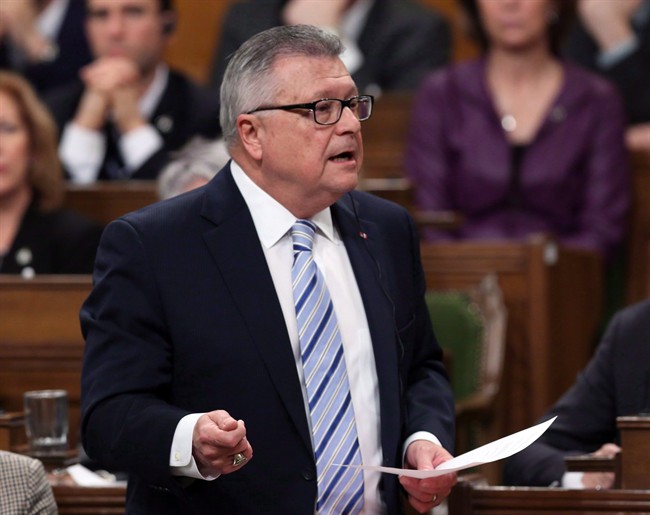The bill that seeks to overhaul the foundations of the Canadian national security landscape could see major changes considered as soon as next week.

Public Safety Minister Ralph Goodale moved a motion Monday in the House of Commons to send C-59, the government’s hallmark national security bill, straight to committee rather than waiting for it to undergo debate at Second Reading as is the usual process.
That move means the legislation could face a much wider range of potential amendments than it normally would if it went to committee after receiving Second Reading, which restricts members from making any changes to the bill that would alter its principle.
Critics, however, say the bill should be split up and handled in smaller chunks, and that its sheer size will pose a challenge to the committee studying it.
“We’re changing so much legislation and even bringing in new acts with this bill,” said NDP public safety critic Matthew Dubé. “It’s just so large and daunting, even for people who are the foremost experts.”
At 130 pages, the bill is huge both in terms of physical size and the scope of its proposed changes to how national security actors operate in Canada.
Introduced in June, it includes sections that will do everything from authorizing the Communications Security Establishment (CSE) to launch offensive cyberattacks against hostile actors to undoing several controversial elements of the former Conservative government’s national security bill, C-51.

Get daily National news
READ MORE: Canadian security agency will soon be able to launch cyber attacks against terrorists
The bill also creates a new expert review body that will review the activities of national security activities carried out by government agencies and departments and tasks a new Intelligence Commissioner with authorizing the warrants granted to the CSE and CSIS, the Canadian Security Intelligence Service.
Members of the House of Commons public safety committee are set to meet Tuesday morning to decide on a schedule for reviewing the bill and that study is expected to begin next week.
At the heart of the debate seen Monday over the motion was the elements of C-51 that the bill will repeal if passed.
Dube said the changes proposed in the bill so far, which tighten the definition of terrorist propaganda and raise the threshold of evidence police need to have before imposing a recognizance with conditions on a suspected terrorist, do not go far enough to safeguard the privacy of Canadians or correct inadequacies plaguing the system now.

C-51, the Conservative legislation, made terrorist propaganda a crime for the first time but critics said its definition was overly broad and went too far by allowing law enforcement to take down material that “advocates or promotes the commission of terrorism offences in general” or “counsels the commission of a terrorism offence.”
C-59 proposes what the government says is a tighter definition and defines terrorist propaganda solely as material that “counsels the commission of a terrorism offence.
READ MORE: Revamped security laws won’t bog agencies down in red tape: Goodale
The Conservatives, on the other hand, accused the government of being soft on terrorism and said the changes will make it harder for police to do their work.
“Canadian safety goes above the comfort of terrorists and criminals,” said Pierre Paul-Hus, Conservative public safety critic. “Canadians who love their country must come ahead of those who would seek to destroy it.”
He warned that while sending the bill straight to committee might be an attempt to speed up its passage through the House of Commons, committee members are unlikely to rush their review.
“We want to take our time because it’s a huge bill,” he said. “I don’t think it’s possible to finish it before Christmas.”
Debate on the motion is expected to wrap up Monday evening.








Comments
Want to discuss? Please read our Commenting Policy first.